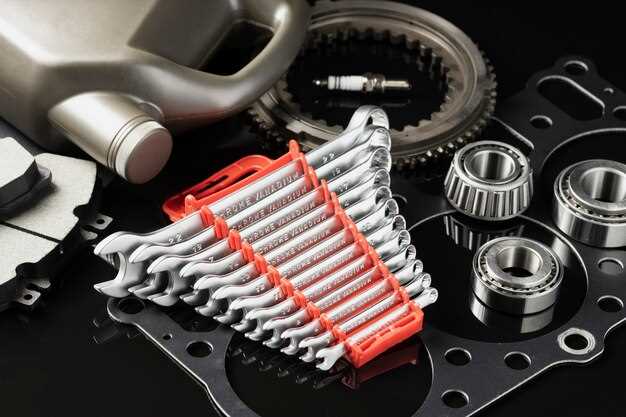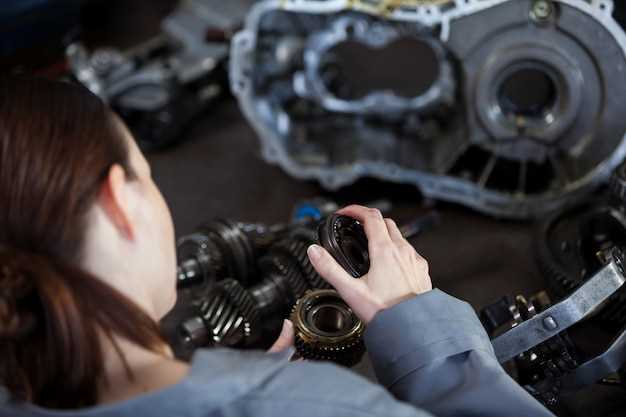
Maintaining the longevity of your car engine is crucial for both performance and cost-effectiveness. A well-maintained engine not only runs smoother but also contributes to better fuel efficiency and lower emissions. Understanding the fundamental practices that can extend the life of your engine will save you from costly repairs and enhance your overall driving experience.
Regular maintenance is the cornerstone of engine longevity. This includes routine oil changes, timely replacement of air filters, and checking fluid levels. Neglecting these simple tasks can lead to serious engine wear and tear over time. Additionally, keeping an eye on engine diagnostics through regular check-ups can help identify potential issues before they become major problems.
Driving habits also play a significant role in engine lifespan. Smooth acceleration, avoiding hard braking, and not overloading your vehicle can greatly reduce strain on the engine. By adopting a more conscious approach to driving, you can help ensure your engine remains in peak condition for years to come.
Furthermore, using quality fuel and engine oils specifically designed for your vehicle model can make a significant difference. These products are formulated to enhance performance and protect against wear, ultimately contributing to a longer lifespan for your engine. With these tips in mind, you can take proactive steps to protect one of your most valuable assets.
Regular Oil Changes and Quality Oil Selection
Regular oil changes are crucial for maintaining the health and longevity of your car engine. Engine oil lubricates moving parts, reducing friction and wear, while also helping to keep the engine clean by carrying away dirt and debris. Over time, however, oil degrades and loses its effectiveness, making it essential to change it according to the manufacturer’s recommendations, which can typically range from every 3,000 to 7,500 miles, depending on the type of oil used.
When selecting oil, quality is paramount. Always refer to your vehicle owner’s manual for the recommended viscosity and oil specification. Brands that meet industry standards or those endorsed by your vehicle’s manufacturer demonstrate reliability and effectiveness. Synthetic oils, though often more expensive, provide superior protection, especially under extreme temperatures and driving conditions, and can extend the interval between changes.
Additionally, consider environmental factors when choosing oil. If you drive in heavy traffic or extreme weather, heavier oils may be beneficial in providing better lubrication. Regularly checking oil levels and quality is also advisable; look for changes in color and consistency, which can indicate contamination or degradation. Timely oil changes and the use of high-quality oils will contribute significantly to a smoother and more efficient engine operation, ultimately prolonging its lifespan.
Monitoring and Maintaining Coolant Levels

Proper coolant levels are essential for the optimal operation of your car’s engine. The coolant serves to regulate the engine temperature, preventing overheating and ensuring efficient performance. Regularly monitoring and maintaining coolant levels can significantly extend the lifespan of your engine.
Here are key steps to effectively manage your car’s coolant:
- Check Coolant Levels: Regularly inspect the coolant reservoir, especially before long trips or during oil changes.
- Understand the Markings: Familiarize yourself with the minimum and maximum level indicators on the reservoir. Ensure that the coolant is within these markings.
- Use the Correct Coolant: Always use the type of coolant specified by the vehicle manufacturer, as different engines require different formulations.
- Mixing Coolants: Avoid mixing different types of coolant, as this can lead to chemical reactions that diminish effectiveness and create sludge.
Additionally, maintaining coolant involves routine checks:
- Inspect for Leaks: Regularly check hoses, clamps, and the radiator for any signs of leaks. Addressing leaks promptly can prevent significant damage.
- Flush the System: Periodically flushing the cooling system helps remove rust, debris, and old coolant. Typically, this should be done every 2-3 years, or as recommended in your owner’s manual.
- Monitor Temperature Gauge: Keep an eye on the temperature gauge while driving. If it rises above the normal range, it could indicate coolant issues.
By diligently monitoring and maintaining coolant levels, you not only protect your engine but also promote overall vehicle reliability and efficiency. Regular upkeep can help you avoid costly repairs and ensure a smoother driving experience.
Checking and Replacing Air Filters Periodically
The air filter in your car plays a crucial role in maintaining engine performance and efficiency. It prevents dirt, dust, and debris from entering the engine, ensuring that only clean air mixes with fuel during combustion. Over time, the filter can become clogged, which restricts airflow and can lead to reduced power, increased fuel consumption, and higher emissions.
It is essential to check the air filter at regular intervals, typically every 12,000 to 15,000 miles, or as recommended in your vehicle’s owner manual. If you drive in particularly dusty or harsh conditions, you may need to inspect and replace the filter more frequently. Signs that your air filter needs attention include a noticeable decrease in engine performance, rough idling, or the check engine light illuminating on the dashboard.
Replacing the air filter is a straightforward process. First, locate the filter housing, usually found near the engine. Remove the cover, take out the old filter, and inspect it for dirt and damage. Insert the new filter ensuring it fits snugly in the housing. Secure the cover back in place to complete the installation. Regular replacement of the air filter helps maintain optimal airflow, enhances fuel efficiency, and prolongs the lifespan of your car’s engine.
In summary, periodic checks and replacements of your car’s air filter are vital for efficient engine operation. By ensuring your air filter is clean, you not only enhance performance but also contribute to the overall health of your vehicle.
Understanding and Following Recommended Maintenance Schedule
Engine longevity significantly depends on adhering to a well-structured maintenance schedule. Every vehicle manufacturer provides a maintenance guide tailored to their specific models. These guidelines are created after extensive testing and analysis, ensuring optimal performance and durability.
The Importance of Regular Maintenance
Regular maintenance helps identify potential issues before they escalate into costly problems. Tasks like oil changes, filter replacements, and fluid checks are critical. For instance, fresh oil lubricates moving parts, reducing friction and wear, while clean filters promote efficient airflow and prevent engine strain.
Key Components of a Maintenance Schedule
Most maintenance schedules outline specific intervals for various services. Common recommendations include:
- Oil changes every 5,000 to 7,500 miles.
- Air filter replacement every 15,000 to 30,000 miles.
- Coolant flushes every 30,000 to 60,000 miles.
- Transmission fluid service every 30,000 to 60,000 miles.
Adapting to Your Driving Conditions
It’s essential to consider your driving habits and environment when following the maintenance schedule. Frequent short trips, stop-and-go traffic, or extreme temperatures can accelerate wear and tear. Under such conditions, increasing the frequency of maintenance tasks may be advisable.
Documenting Maintenance
Keeping a detailed record of all maintenance performed is crucial. This documentation not only helps track your vehicle’s health but can also enhance its resale value. Having proof of regular service can instill confidence in potential buyers and demonstrate that the car has been well cared for.
By understanding and following the recommended maintenance schedule, you can greatly enhance the lifespan of your car engine and ensure reliable performance over the years.
Avoiding Short Trips and Engine Idling
Short trips and prolonged idling can significantly impact the lifespan of your car engine. Understanding the effects and adopting better driving habits can help maintain the engine’s health.
When you take short trips, the engine may not reach its optimal operating temperature. This can lead to several issues:
- Increased Fuel Contamination: Fuel doesn’t burn completely in cold conditions, causing unburnt fuel to accumulate.
- Oil Dilution: Condensation and unburnt fuel mix with engine oil, reducing lubrication efficiency.
- Increased Wear and Tear: Cold starts put additional strain on engine components, leading to premature wear.
To mitigate these effects, consider the following tips:
- Plan Longer Trips: Combine errands into one longer trip to allow the engine to reach and maintain its optimal temperature.
- Use Alternative Transportation: For very short distances, consider walking, biking, or using public transport.
- Warm-Up the Engine: If you must start the engine for a short trip, allow it to idle for no more than 30 seconds before driving. This provides some initial warming without prolonged idling.
Idling can also have negative consequences. When you leave your engine running while parked, it negatively affects fuel efficiency and air quality:
- Increased Fuel Consumption: While idling, your vehicle burns fuel without any mileage gain.
- Environmental Impact: Excessive idling contributes to air pollution and greenhouse gas emissions.
To reduce idling time:
- Shut Off When Stationary: Turn off the engine if you expect to be parked for more than a minute.
- Use Remote Start Wisely: If your vehicle has remote start features, use them judiciously to avoid unnecessary idling.
By avoiding short trips and reducing engine idling, you can enhance your engine’s longevity, optimize fuel efficiency, and contribute positively to the environment.
Keeping the Engine Clean and Free of Debris
Maintaining a clean engine is essential for its optimal performance and longevity. Dirt, grease, and debris can accumulate over time, leading to reduced efficiency and potential mechanical issues. Regular cleaning helps in identifying potential leaks or problems early, preventing more significant repairs down the line.
Here are several effective strategies to keep your engine clean:
| Method | Description | Frequency |
|---|---|---|
| Visual Inspection | Regularly check the engine compartment for dirt, debris, and signs of leaks. This helps in early detection of potential issues. | Monthly |
| Use of Engine Degreaser | Apply a degreaser to remove built-up grime. Follow the label instructions for proper use. | Every 6 months |
| Covering Sensitive Parts | Before cleaning, cover electrical components and air intakes with plastic bags to prevent water damage. | As needed |
| Pressure Washing | Use a pressure washer with caution to remove stubborn debris, ensuring sensitive areas are protected. | Annually |
| Regular Air Filter Check | Inspect and replace the engine air filter periodically to ensure that it is not contributing to dirt accumulation. | Every 12,000 miles or as recommended |
Implementing these practices will substantially aid in keeping your engine clean and functional. It will also enhance fuel efficiency, resulting in long-term savings and a smoother driving experience.
